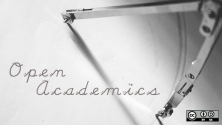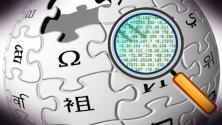As open source software becomes more mainstream, it's easy to forget how amazing it is. Countless individuals, donating their time and sharing their brainpower, work to build a shared infrastructure on which the world's computing is done. Amazing. Even more amazing, in survey after survey, the big reason open source contributors give for their participation is that it's "fun." Even more amazing than that is the rate at which this technology improves because people are having fun building it.
Wikipedia, the free internet encyclopedia that anyone can write or edit, is no less amazing. Yet as it gains legitimacy, the exciting story of how it is created and renewed--daily, perpetually--is de-emphasized. Yes, Wikipedia is imperfect. By design, it will always be a work in progress. But because there is a collective human impulse to share knowledge, the fact that anyone can improve it any time they want, means that someone always will.
Ogg Version.
By Wikimedia Foundation. Video credits: Directed by Jelly Helm, produced by Noah Stanik, shot by DP Reed Harkness, edited by Sarah Marcus. Music by Matt Carey. Production team, Living Colour. Agency partner Fenton Communications. (Wikimedia Foundation) [CC-BY-SA-3.0 (www.creativecommons.org/licenses/by-sa/3.0) or GFDL (www.gnu.org/copyleft/fdl.html)], via Wikimedia Commons
Marketers at open source technology companies tend to shy away from telling the broader open source story in favor of touting the features and benefits of their products and services. And, for the most part, this makes sense. People who buy enterprise technology generally already understand how open source works. They just need to make sure the solution will work for them. That's fine, but it can obscure the larger, very important idea that open source is what makes their technology better in the first place. Building a customer base means answering customers' questions, satisfying their need to know--most often about form and functionality. It can mean only telling half your story, but it's a necessary trade-off that usually works.
Wikipedia doesn't need new customers. In January of 2010, they were the fifth most visited site on the web (behind Google, Microsoft, Yahoo, and Facebook), with 365 million unique visitors that month. And in April of 2010, the 1,000,000,000th edit was made.
But over the past few years, Wikipedians noticed the growth in the number of edits, especially in the English-language editions, was reaching a plateau, and they wanted to find a way to remind people that the collaborative act of creating Wikipedia is, well, a lot of fun.
So the Wikipedia Foundation produced four short videos (Username, Nice People, Edit Button, and Great Feeling) to "inform the general public about the people and inspiration behind our movement, and also to energize and inspire new Wikipedia editors to engage bravely in contributing to Wikipedia."
To tell their story, they hired Portland, OR creative director Jelly Helm. Helm's team shot 35 Wikipedians at the Wikimania conference in Gdansk, Poland last July. Helm let the cameras roll, let the Wikipedians talk, and let their enthusiam and passion do the rest.
In Part II, we'll talk to Helm about the campaign and share what he learned from the experience about telling the open source story.







6 Comments